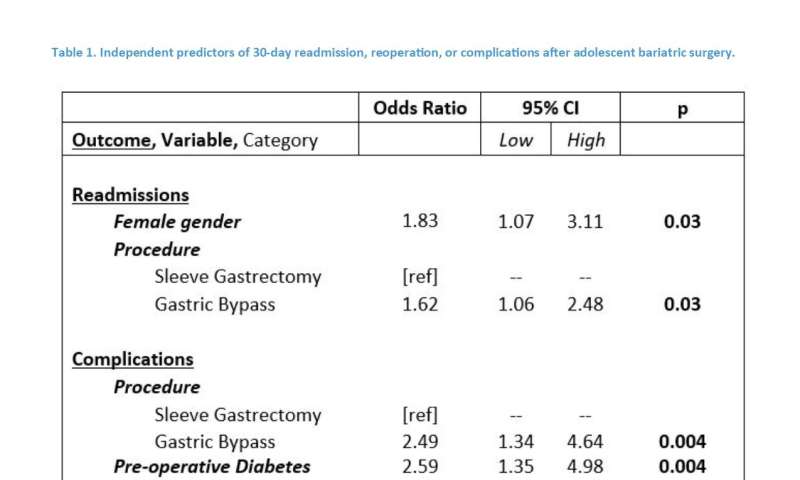
Bariatric surgery is safe for teens with morbid obesity and is beneficial for young patients who would otherwise face potential lifelong risks of death associated with obesity, according to new research being presented at the American Academy of Pediatrics (AAP) 2019 National Conference & Exhibition.
The research abstract, “Current Trends and Outcomes of Adolescent Bariatric Surgery: an MBSAQIP Analysis,” will be presented on Oct. 27 at Ernest N. Morial Convention Center.
“Our study helps shed light on the safety of bariatric surgery, especially for young adolescents,” said presenting author Robert A. Swendiman, MD, MPP, MSCE, at the Hospital of the University of Pennsylvania. “As clinicians we must balance the risks of surgery versus prolonged exposure to the ill effects of obesity in children.”
The analysis for MBSAQIP, or Metabolic and Bariatric Surgery Accreditation and Quality Improvement Program, reviewed more than 3,700 cases involving patients ages 10-19 who underwent either a minimally invasive (laparoscopic or robotic) Roux-en-Y gastric bypass or sleeve gastrectomy.
Researchers analyzed 3,705 cases of adolescents, ages 10 to 19, finding few complications (1.4%); readmissions to the hospital (3.5%); reoperations (1.0%); and no deaths in the first 30 days after surgery.
They noted that about 80% of the cases were sleeve gastrectomies, which over the past few years have become the preferred choice over the gastric bypass. The authors noted that the chances of readmission were 62% higher in gastric bypass patients when compared with the gastric sleeve patients, and patients undergoing the gastric bypass were more than twice as likely to suffer complications.
The most commonly reported comorbidities included hypertension (33.8%), obstructive sleep apnea (16.1%), gastroesophageal reflux disease (12.9%), and diabetes (11.8%).
Source: Read Full Article
